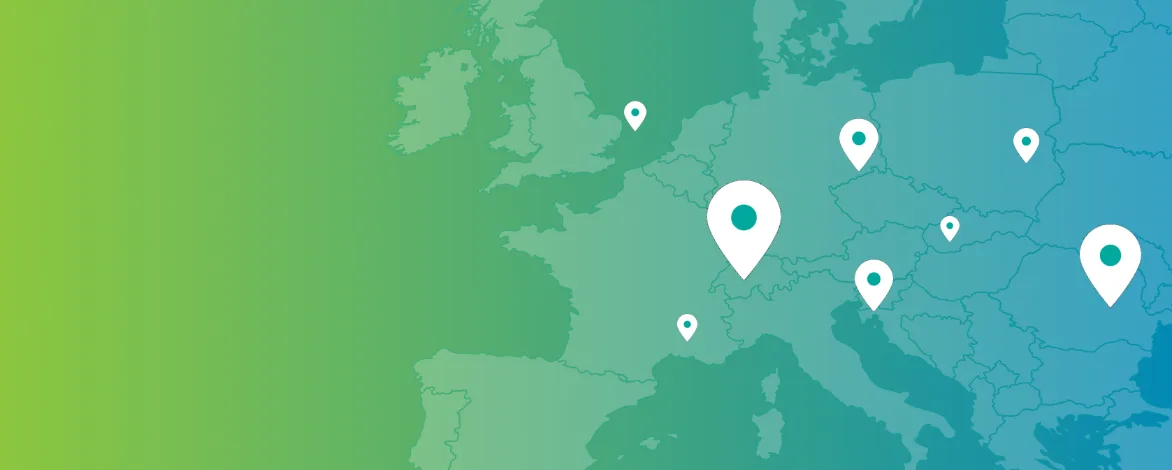Chemical industry snapshot
A massive exporter
The chemical industry (including oil & refinery, NACE 19, chemicals, NACE 20, pharmaceuticals, NACE 21 and the rubber & plastics sectors, NACE 22) produced 21% of total Swedish exports in 2022, worth approximately €44 billion (2022).
Underpinning many other industries
Acting as a foundation for economic development, our industry includes chemicals and chemical products, oil refining, pharmaceuticals, plastics and rubber products, paints and coatings, hygiene products, detergents, agrochemical and other chemical products. Basic chemicals include plastics in primary forms and organic and inorganic basic chemicals.
Providing many jobs
The industry provides about 54,000 full-time jobs in 1886 companies.
How are we doing?
Strengths
- Well-educated and highly skilled workforce
- Good physical and social infrastructure
- Renowned environmental expertise
- Strong safety and responsibility culture (Responsible Care) in production and distribution
- Very good R&D centres, university and technical university infrastructure
- Highly integrated globally-competitive clusters and chemical parks
- High resource efficiency
- Strong collaboration with trade unions
Challenges
- High energy and logistics prices
- Reliance on raw material imports
- High labour costs
- Low acceptance of chemical industry and products by the Swedish public
- Unpredictable and long permit processes
Our contribution to a competitive Europe
Transition pathway for climate neutrality, competitiveness and chemicals
The Swedish chemical industries are vital to the overall transition in Sweden. In addition to the ongoing transition on the industry´s own production sites, the industry innovates, produce and deliver chemicals and solutions needed in all value chains making transition possible for others.
The Swedish government is running the initiative “Fossil Free Sweden” to increase the pace of the climate transition. Obstacles and opportunities are identified and political proposals are produced and presented to the Government. IKEM is part of this process along with 22 other sectors in the Swedish economy. Sweden has a strong focus on competitiveness and works with several strategies, for example on circular economy, bioeconomy and standardisation.
Investing in research
Sweden is big in R&D despite being such a small country. Even though Sweden cannot measure up to larger countries in terms of money spent in total or the number of full-time equivalents, a different story is told when one accounts for the size of the economy and population.
Links with other industries and research/universities
The chemical industry, the textile and clothing industry and the forest industry in Sweden are collaborating since 2014 in the strategic innovation program BioInnovation. Stakeholders from business, academia, institutes and public sector are collaborating towards the mission to create the best conditions for the development of the Swedish biobased sector, and to create sustainable solutions for a global market. Swedish chemical industry are also participating in various initiatives such as the network Suschem, where the Swedish node in march 2024 published a “Chemistry Agenda” to specify the goals and illuminate the incentives and conditions needed to strengthen the innovative capacity within the Swedish chemical industry. The ten actions presented in the agenda create conditions for future innovations and enhance the development of safe and sustainable chemicals and products from the Swedish chemical industry. The agenda is a collaborative project between SusChem Sweden, the industry and the research institute IVL Swedish Environmental Research Institute.
IVL also coordinates the EU Horizon project IRISS – International ecosystem for accelerating the transition to Safe-and-Sustainable-by-Design materials, products and processes, ehere also IKEM and the industry participates.
Opportunities for Growth
Growth in the Swedish chemical sector during the last 3 years amounts to 23 percent. Prospects for the coming years are positive but to succeed in the transition industry must be given the right conditions to maintain it´s competitiveness and continue to attract global investment. A key factor is a secure and sufficient electricity supply at a competitive price. Other main prerequisites for transition encompass the availability of carbon as a feedstock, faster and more efficient development of new safe and sustainable chemicals, availability of skilled workers and a strong single market and free trade.
Smart specialisation
As an enabler of all other industrial sectors, the chemical industry is highly integrated to other sectors, and smart specialization is a natural way for a small country like Sweden to compete and succeed amid global competition.
Reference: Based on official statistics from Statistics of Sweden.













